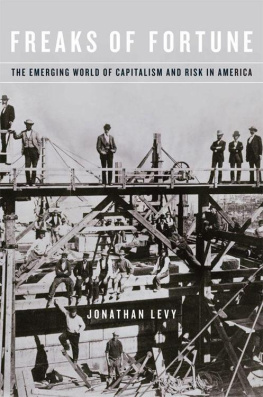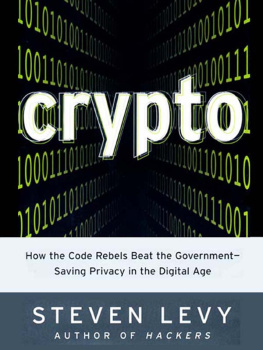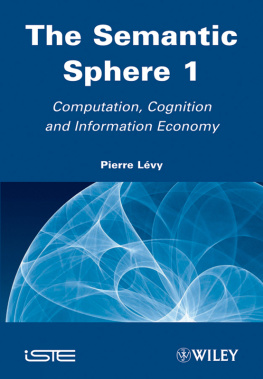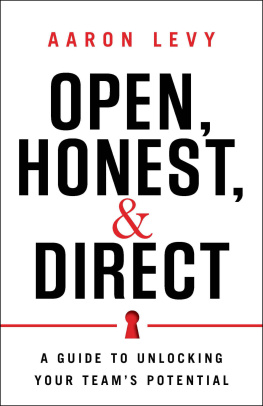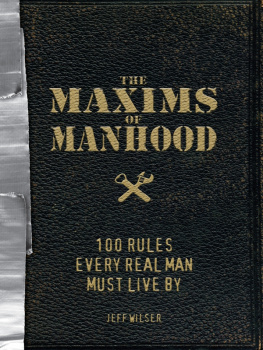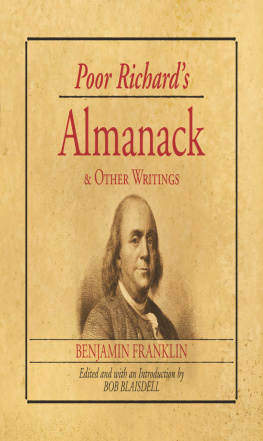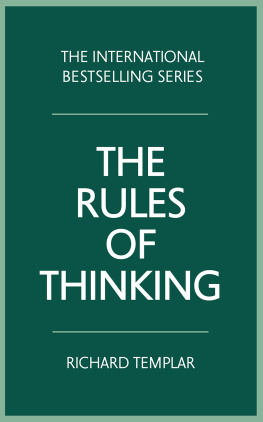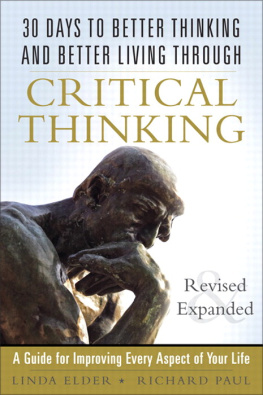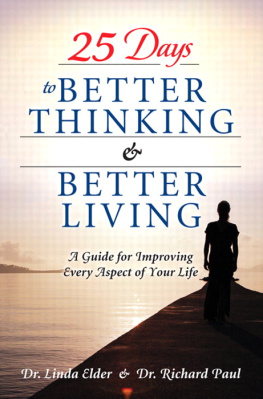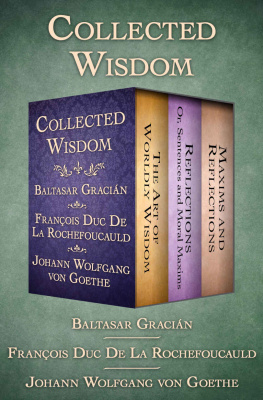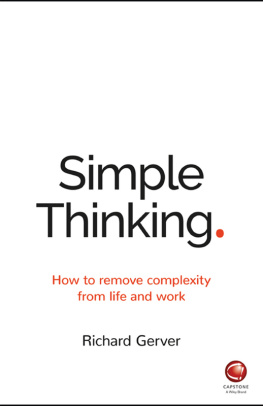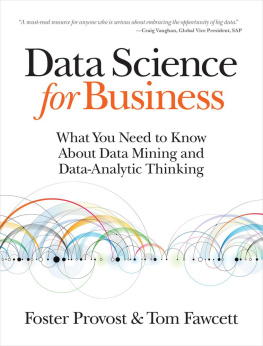MAXIMS FOR THINKING ANALYTICALLY
The wisdom of legendary
Harvard Professor Richard Zeckhauser
Dan Levy
Foreword by Larry Summers
W hile every precaution has been taken in the preparation of this book, the publisher assumes no responsibility for errors or omissions, or for damages resulting from the use of the information contained herein.
Maxims for Thinking Analytically: The wisdom of legendary Harvard Professor Richard Zeckhauser
First edition. June 27, 2021
Copyright 2021 Dan Levy.
Written by Dan Levy.
Cover Image: Mental Power Concept by DrAfter123 via Getty Images.
ISBN
Ebook: 978-1-7353408-9-0
Paperback: 978-1-7353408-8-3
This book reveals a creative mind and a caring heart. Richard Zeckhausers maxims help us become smarter and better. Analysis does not equal paralysis; it leads to wiser decision making. Join the thousands of Harvard students and faculty who have benefited from Richards wisdom: read Maxims for Thinking Analytically.
Iris Bohnet, Harvard Kennedy School Professor, author of What Works: Gender Equality by Design
Richard Zeckhauser is a savvy producer and consumer in a noisy marketplace of ideas. His maxims are a crash course in thinking effectively.
Phil Tetlock, University Professor, University of Pennsylvania, author of Superforecasting
Richard Zeckhauser has few if any equals in insights and wisdom delivered per hour, especially when the subject involves risk and uncertainty. This book makes much of that knowledge available to its readers.
Mike Spence, Winner of the Nobel Memorial Prize in Economics, New York University Professor
Maxims for Thinking Analytically was a true eye opener to me. As a professional in a game which is based on probability, it was shocking to realize that I am pretty bad at estimating chances and using probability in everyday life.
Marion Michielsen, two-time world champion in bridge and frequent bridge partner of Richard Zeckhauser
Spending an hour talking to Richard Zeckhauser is like having a massive dose of wisdom injected into your brain. It can be hard to keep up. This book provides a sample of that wisdom in small and digestible chunks. It is a treasure.
Richard H. Thaler, Winner of the Nobel Prize in Economics, University of Chicago Professor, and author of Nudge
To Richard Zeckhauser, for being an extraordinary mentor
To John and Licita Levy, for being extraordinary parents
Table of Contents
Chapter
Chapter
Chapter
Chapter
Chapter
FOREWORD
Larry Summers
Charles W. Eliot University Professor and President Emeritus at Harvard University
Richard Zeckhauser is a brilliant man who has made fundamental contributions to economic theory, public economics, decision analysis, behavioral economics, and many other parts of social science. This wonderful book celebrates instead a different and unique Zeckhauser contribution.
Decades ago, Michael Polanyi introduced the concept of tacit knowledge that which we know but cannot say. Tacit knowledge takes many forms: for example, from how to win at bridge to how to have a happy marriage, from how to think clearly about a public policy problem to how to have a satisfying career or how to deal with situations that lack clarity. We all possess tacit knowledge. Few of us possess as much, in as many areas, as Richard Zeckhauser.
This book encapsulates Zeckhausers efforts over many years to make his insight and wisdom explicit rather than tacit. The maxims it contains enable us, the readers, to begin to think and live more like Richard and that means much better. Tale after tale from Richards disciples of how his maxims helped them think better make his gifts explicit. To use economic language, this is a public good.
It has been my privilege to know Richard for 53 years. We met first when I was 13 years old, and Richard, a friend of my parents, was kind enough to come and play bridge with me and my brothers. At one level it was not one of Richards most successful pedagogical moments. Not being able to remember what had been in our hands after the cards were played, Richards references to the possibility of cross ruffs went flying way over our heads.
But in a deeper sense it was a profoundly educational afternoon for me. I appreciated for the first time that complexity could be mastered through the careful application of logic, that strategy should be based on the assumption that rivals would also make strategic choices, and that one often had to make choices knowing that one was more likely than not to be wrong. These lessons have stayed with me in domains far from the card table.
Years later, as a graduate student in economics, I had many conversations with Richard. I learned that it is more fun, more useful, and more interesting to think about the economy than to think about the economics literature. Richard is incapable of picking up an issue of the New York Times without detecting three errors of logic, two situations that were being misanalyzed by their protagonists, and four nonobvious questions worth serious reflection.
A few years later I was in the hospital with an unknown but serious condition. Richard was not my closest friend but he was my most frequent visitor, and his visits were unlike any others. To start with, it was impossible to keep up with the flow of ideas and concepts without being entirely distracted from my worries. Usually the doctors educate the patients and their guests. Not when Richard visited. At the time there were two possible explanations for my symptoms. When told this, Richard inquired about their relative frequency in the population. The more serious diagnosis was about 1/10 as frequent as the less serious one, so I was much more likely to have the better of the two possibilities. Successive interns and residents arrived. None knew the relative frequency and several thought it was entirely irrelevant to my situation. They learned from Richard of the need to pay attention to background probabilities and at least one commented that Richards remarks were more educational than anything an attending physician had said in weeks.
In the time of my illness and at several points thereafter Richard taught me by example that it is easy but not so important to support, congratulate, and be with people when they are up. People need their friends and need new friends when they are down. For me as for so many others, Richard Zeckhauser has been the model foul weather friend. It is an important legacy.
This book is a richly deserved tribute to Richards wisdom and wit. I promise the reader who will never meet Richard that it is much more. It is a source of explicit guidance on how you can be shrewder and wiser, and ultimately happier and more contributing. Enjoy the privilege I gained at that bridge table in 1968 and have so valued ever since learning from Richard Zeckhauser.
ACKNOWLEDGMENTS
I would like to acknowledge the help of several people who made this book possible. Alice Heath, a PhD student at the Harvard Kennedy School who was a teaching assistant for Richard Zeckhausers course, gave me insightful feedback on every chapter of the book, helped refine my thinking, and made the book more accessible to nontechnical readers. Miriam Avins edited the book superbly and was a very thoughtful partner in this effort. Victoria Barnum provided research assistance, navigated the publishing process, supported me in various ways during the writing process, and helped me have the time needed for writing. Ruth Htte and Vanessa Levy contributed tremendously to this books design.
I would like to thank all of Richards coauthors, colleagues, and students. They made this book possible by providing examples, stories, and anecdotes of how they had used Richards maxims in their personal and professional lives. In many ways, this makes each of them a coauthor of this book. Contributors short bios appear in Appendix B.
Next page


